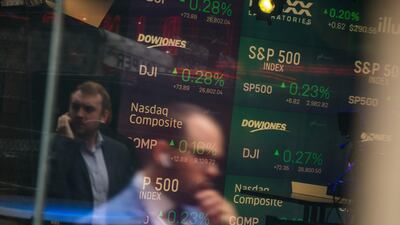If the first few days of September are anything to go by, the roller coaster underway throughout 2019 shows no signs of abating.
Data released this month shows the world economy continuing to struggle through the summer, with the global manufacturing Purchasing Managers' Index remaining in contraction territory at 49.5, up only marginally from July’s 49.3, the lowest levels in almost a decade.
Against this backdrop, markets appear to have settled on the need for more monetary easing, even beginning to normalise negative interest rates which were viewed only a few years ago as extraordinary. If this was not unusual enough, geopolitical risks continue to fluctuate wildly, with the mood regarding trade wars and Brexit changing almost daily over the past week. Investors face overvalued stocks on the one hand and bond bubbles on the other, with no clear resolution on either and uncertainty stretching a long way ahead.
With the global macroeconomic environment deteriorating, even before it ever properly recovered, it's perhaps not surprising that policy responses are becoming more desperate and for politics itself to be much more febrile and volatile.
Last week, PMI surveys across the world painted a grim picture of the health of the global economy and reinforced expectations of easing monetary policies. Of these, the Eurozone readings stood out. All key economies with the exception of France remained well in contraction territory in August, while in July German industrial production unexpectedly contracted by -0.6 per cent. The overall Eurozone manufacturing PMI reading stood at 47.0 in August 2019, while the Markit manufacturing PMI reading for the UK also dropped from 48.0 in July to 47.4 in August.
The difficulty facing central banks when confronting such data is that they have already tried almost everything to correct it. So, while markets look ahead confidently to further easing steps from the ECB in the coming week, they also know the ECB board is conflicted about how far to go and whether or not more damage than good is being done by negative interest rates. Cutting interest rates may be the conventional prescribed policy action, but confidence in this strategy is wilting as a means of reversing these negative trends.
The US is also undergoing its own circumspection about the efficacy of cutting interest rates even before they begin to reach close to the zero bound. Former New York Federal Reserve president Bill Dudley has called on the Fed not to "enable" President Donald Trump by cutting rates to bolster growth that is being negatively impacted by Mr Trump’s trade policies.
He suggested that Mr Trump’s re-election potentially represents the biggest threat to the US and global economy and this should be taken into account when setting monetary policy. Not surprisingly these remarks met with a barrage of criticism from Trump supporters. However, they go to the heart of the problems facing the world economy at this juncture. With governments around the world often eroding confidence with their unorthodox and unpredictable policies, what chance do central banks have to adequately deal with the consequences? And what chance do investors have to correctly read the implications for markets?
In the space of the last week, arguably the two biggest political risks facing the world right now saw 180-degree turns in their fortunes. The US-China trade dispute started last week negatively as both sides went ahead with their latest tariff increases, only to end the week more hopefully as China announced that its trade officials will travel to the US early next month for talks. On Brexit too, the week started with news that suggested a "no-deal" Brexit was likely, only to end with a completely different perspective.
Who is to say these risks will not reverse completely again in the coming days? And in such an environment, what chance do central bankers and investors have in accurately calibrating the correct level for interest rates, bonds and for stocks? At the most basic level, the continuation of such roller coaster events should not leave any of us much surprised by the economic data that continues to be revealed.
Tim Fox is chief economist and head of research at Emirates NBD


